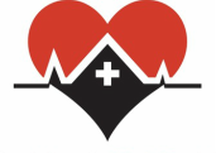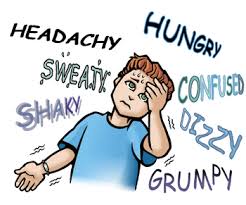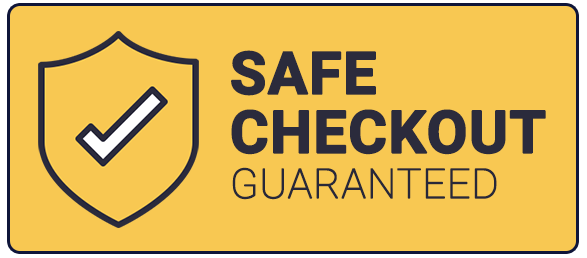|
Diabetes is a condition that prevents the production of insulin. Because the individual cannot produce insulin correctly, people with diabetes cannot regulate the amount of sugar that builds up in their bloodstream. This results in various health-related complications. Diabetes is normally divided into two types: Type 1 Diabetes which causes the body's white blood cells to start attacking the cells that produce insulin in the pancreas and Type 2 Diabetes which is a metabolic condition.
People suffering from diabetes can experience complications when participating in a sudden period of intense exercise, missing a meal due to a lengthy meeting or just forgetting, and/or consuming a large meal which results in a influx of complex sugars. Effects do vary from patient to patient, but general diabetic complications result in one of two things: hyperglycemia which is caused by an excess of sugar in the blood or hypoglycemia, caused by the absence of sugar in the blood. An individual experiencing hypoglycemia will often experience extreme fatigue manifested by weakness, a feeling of dizziness and/or hunger. These individuals may also appear confused and will have cold and clammy skin resulting in trembling or irrational behavior. An individual experiencing hyperglycemia will often have warm skins, a rapid pulse, and unexpected drowsiness. These individuals may also experience dehydration and feel the need to urinate frequently due to their body trying to expel the excess sugars. Due to the fact that copious amounts of sugar in the body can be harmful, individuals experiencing hyperglycemia may become unresponsive, slur words or fail to respond to gentle stimuli. This is an indication that they may be progressing to a hyperglycemic coma; subsequently needing immediate emergency treatment. If someone appears to be hyperglycemic, then dial 9-1-1. If they become unresponsive then place them on their left side in the recovery position and ensure that their airway remains open until emergency help arrives. If the individual appears to hypoglycemic, have the individual sit or lie down and check to see if they have sweets or any sugar packets. If so, administer immediately. If they do not have a source of sugar, then find cola, fruit juice, or even chocolate and assist them with eating this. During this process, monitor and observe the patient for any signs of a worsening condition. if they become worse, call 9-1-1 immediately. If someone appears to be hypoglycemic, then have the individual lie or sit down. If then individual is not carrying any sweets with them, then administer come cola, fruit juice, or a sugar packet. Ensure to monitor and observe the individual to see if condition worsens. If the individual begin to become confused or is experiencing extreme fatigue then call 9-1-1.
Comments
|
AuthorDr. Tracy A. Jones is the CEO of Help-A-Heart CPR, LLC and an American Heart Association, ASHI, and American Red Cross Master Program Trainer, Instructor, & AHA Faculty Member located in San Antonio, Texas. Archives
June 2024
Categories |
Help-A-Heart CPR, LLC | 1747 Citadell Plaza Suite 101 | San Antonio, Texas 78209 | (210) 380-5344 | [email protected]
Copyright © Help-A-Heart CPR, LLC 2024
100% Certification Acceptance
We promise your employer, school, or agency will accept the certification card we issue to you. If there is a question of acceptance or validity, simply send us an email at [email protected] with full details. We will reach out to the individual/entity and provide accreditation information. If still there’s a question, we will provide you with a full refund of your class fee. It’s that simple.
We promise your employer, school, or agency will accept the certification card we issue to you. If there is a question of acceptance or validity, simply send us an email at [email protected] with full details. We will reach out to the individual/entity and provide accreditation information. If still there’s a question, we will provide you with a full refund of your class fee. It’s that simple.
|
Communities Served
ALABAMA: Birmingham
ARKANSAS: Fayetteville, Hot Springs, Jonesboro, Little Rock NEW MEXICO: Albuquerque TENNESSEE: Knoxville TEXAS: Amarillo, Arlington, Austin, Bandera, Bastrop, Boerne, Brownsville, Comfort, Converse, Corpus Christi, Dallas/Ft. Worth, Del Rio, Dripping Springs, El Paso, Floresville, Fredericksburg, Georgetown, Harlingen, Houston, Junction, Katy, Kerrville, Kingsville, Kingwood, Laredo, Lubbock, Lufkin, McAllen, Midland, New Braunfels, Odessa, Pleasanton, Round Rock, San Angelo, San Marcos, Schertz, Seguin, Taylor, Temple, Texarkana, Tyler, Universal City, Victoria, Waco, The Woodlands |
Why Choose Help-A-Heart CPR?
1. Flexible Scheduling
2. On and Off Location Training Available 3. Casual, Fun Atmosphere 4. Best Price Guarantee 5. All Instructors are AHA and/or ARC certified 6. 5 Star Google Reviews 7. Blended Learning (Online & Skills Check) Available 8. Meets OSHA & College CPR Requirements 9. Get Certified Within 3-4 Hours 10.Certification Is Good For Two Years 11. Official AHA/ARC/ASHI Training Site 12. High Quality Safety Training! |








